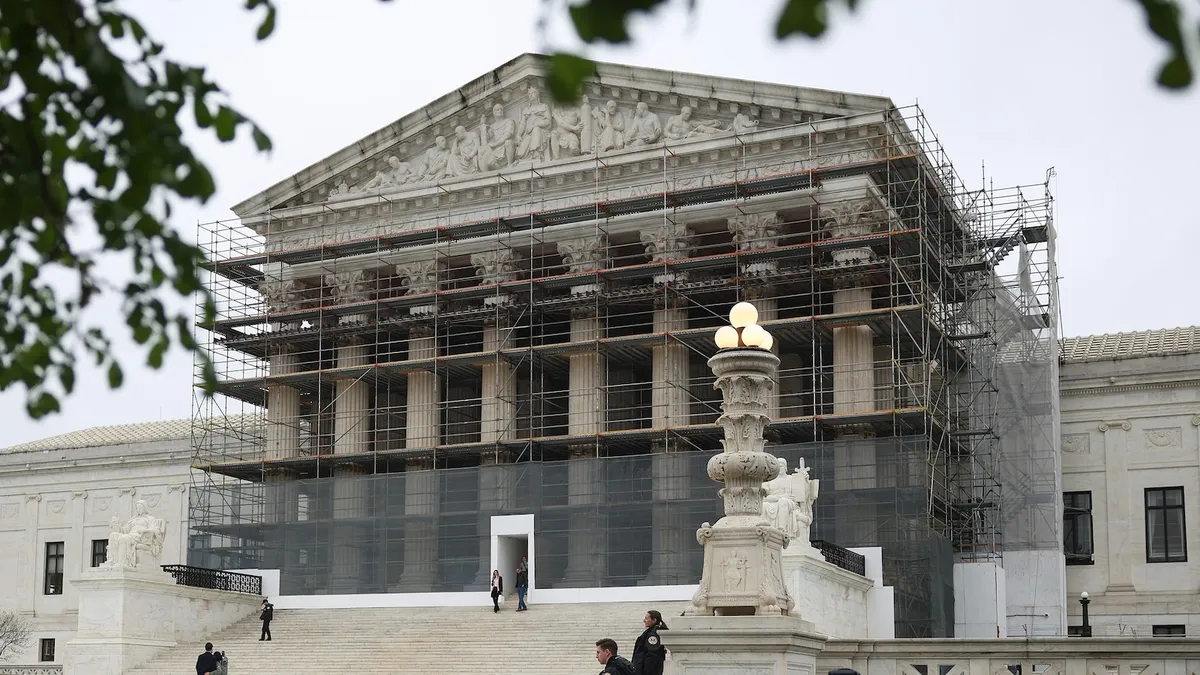
The Supreme Court announced on Thursday that it will hold expedited oral arguments next month regarding President Donald Trump's emergency request to lift nationwide injunctions against his executive order aimed at ending birthright citizenship. The nation's highest court has scheduled these arguments for May 15 at 10 a.m. This significant move by the justices sets the stage for a potential decision this summer regarding three separate district court injunctions that have blocked the administration's efforts to establish a new standard for determining citizenship for children born on U.S. soil to parents lacking permanent legal status.
President Trump has urged the Supreme Court to permit the administration to at least begin planning for the proposed changes. Additionally, he has criticized the universal mandates from lower courts, claiming they exceed their authority. "This Court should declare that enough is enough before district courts’ burgeoning reliance on universal injunctions becomes further entrenched," Trump's acting solicitor general stated in the court application.
The application requests that the Court stay the district courts' preliminary injunctions, except for individual plaintiffs and members of the organizational plaintiffs. It also suggests that if the Court determines that states can be proper litigants, it should extend the stay to individuals who are born or reside in those states. At a minimum, the motion seeks to allow agencies to develop and issue public guidance regarding the implementation of the executive order.
Trump's acting solicitor general emphasized that only this Court's intervention can prevent universal injunctions from becoming an accepted norm. While the immediate focus of the case is on the scope of the injunctions, it is also possible that the justices may delve into the substance of Trump's executive order and the constitutionality of birthright citizenship. This principle, enshrined in the 14th Amendment, has been consistently upheld by precedents set by the high court.
Four distinct district courts, along with three federal appeals courts, have kept Trump’s policy on hold amid ongoing litigation, finding it likely unconstitutional. Earlier this month, a coalition of states and immigrant advocates urged the Supreme Court to reject Trump's emergency request to overturn the nationwide injunction against his executive order regarding birthright citizenship. They argued that being directed to adhere to the law, which has been universally understood for over 125 years, does not constitute an emergency justifying the extraordinary remedy of a stay.
The coalition asserted, "This Court should deny the federal government's request." Although many aspects of constitutional interpretation invite vigorous debate, they maintained that the merits of this case are not contested. For over a century, it has been the established view of the Supreme Court, Congress, the Executive Branch, and legal scholars that the Citizenship Clause of the 14th Amendment guarantees citizenship to children born in the United States, irrespective of their parents’ citizenship status, allegiance, domicile, immigration status, or nationality.